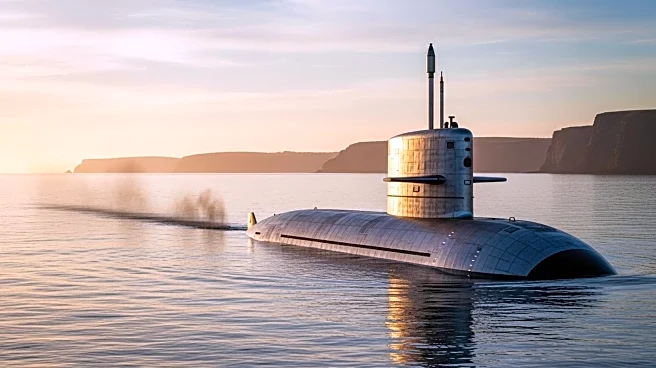What's Happening?
A Russian Kilo-class submarine, Novorossiysk, surfaced in the Strait of Gibraltar due to a fuel leak. The submarine, part of the Black Sea Fleet, was previously stationed at the port of Tartus in Syria. The leak is reportedly due to a damaged fuel system, with fuel accumulating in the hold, posing a risk of explosion. The crew lacks repair parts and qualified specialists to address the issue, and may attempt to pump the fuel into the sea. Additionally, Russia's missile corvette Vyshny Volochyok suffered damage in the Sea of Azov after colliding with a civilian tanker. These incidents highlight ongoing challenges faced by the Russian navy.
Why It's Important?
The surfacing of the Russian submarine at Gibraltar due to a fuel leak raises significant concerns about maritime safety and environmental risks. The potential for fuel to be pumped into the sea poses a threat to marine ecosystems and could lead to international diplomatic tensions. The damage to Russian naval vessels may impact Russia's military capabilities and strategic operations in the region. These developments could influence geopolitical dynamics, particularly in the Mediterranean and Black Sea areas, affecting NATO and EU member states' security considerations. The incidents also underscore the operational challenges faced by the Russian navy, potentially affecting its global maritime presence.
What's Next?
The Russian navy may need to address the technical and logistical challenges posed by the submarine's fuel leak and the corvette's damage. International maritime authorities and environmental groups may monitor the situation closely, potentially leading to diplomatic discussions or interventions. Russia's naval strategy and operations in the Mediterranean and Black Sea regions could be reassessed in light of these incidents. The situation may also prompt NATO and EU member states to enhance maritime security measures and cooperation to address potential threats and environmental risks.












